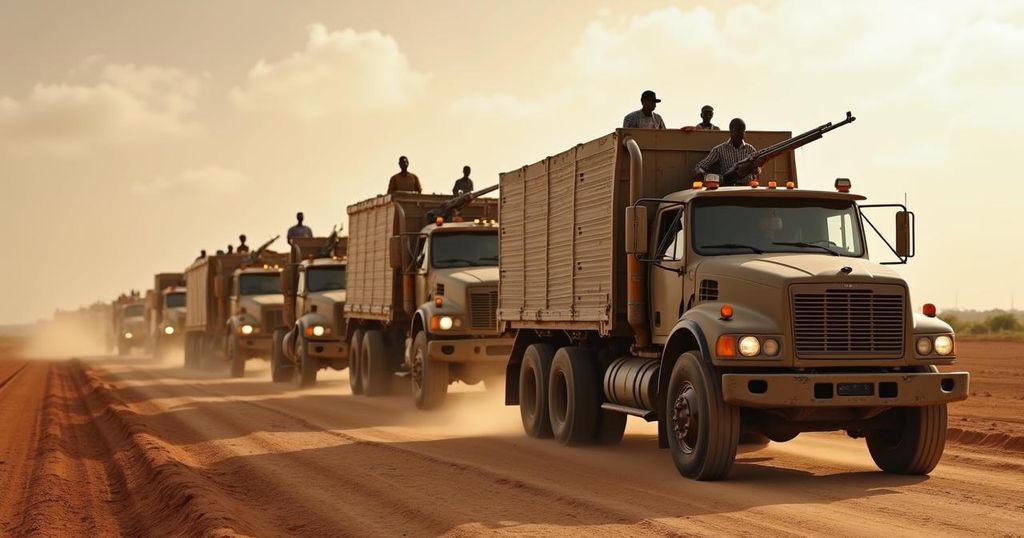Foreign Arms Shipments Escalate Sudan’s Civil War: A Closer Look at UAE and Iran’s Involvement

Sudan’s civil war is significantly fueled by clandestine arms shipments from foreign nations, particularly the UAE and Iran. Despite denials, investigations reveal substantial military support provided to both the RSF and Sudanese military. The ongoing conflict has created a humanitarian crisis with widespread displacement and threatens regional stability, as various nations vie for influence over Sudan’s strategic location near critical shipping routes.
Sudan’s civil conflict is exacerbated by clandestine armaments supplied by foreign nations, notably the United Arab Emirates (UAE) and Iran. A comprehensive report funded by the State Department, alongside evidence gleaned from captured weaponry, supports claims that both the Sudanese military and the Rapid Support Forces (RSF) are receiving military aid from outside sources. While the RSF has vocally denied such support from the UAE, investigations conducted by the Sudan Conflict Observatory tracked 32 flights purportedly transporting arms from the UAE to the RSF between June 2023 and May 2024. The Emirati government has firmly rejected these allegations, labeling them as false. Concurrently, the Sudanese military has reportedly been employing armed drones supplied by Iran. Evidence collected by the observatory, including tracked flights and a Sudanese security official’s confirmation, indicates the transfer of military drones, despite the military’s public refutations. The civil war, which erupted in April 2023 due to rising tensions between the military and RSF, has since led to the displacement of approximately one-fifth of the Sudanese population and the looming threat of famine. Geopolitical concerns regarding the stability of the Red Sea region are at stake, as nations like the UAE and Iran continue to lend support to local factions, raising fears of a wider regional conflict. Diverse interests in Sudan are driven by its strategic location near significant shipping routes, with implications on economic and military fronts for several regional powers, including Egypt and Turkey. An in-depth analysis reveals that the UAE’s involvement is heavily tied to concerns about trade routes and local resource management, alongside historical affiliations with RSF leadership. Furthermore, the Sudanese military’s quest for support has seen it attempt to ally with Iran and Russia amidst cooling relations with traditional partners like Egypt. Ultimately, while the extent and impact of these foreign arms shipments remain a topic of contention, they undeniably play a critical role in fueling the ongoing civil strife in Sudan.
The context surrounding Sudan’s civil war, which erupted in April 2023 following increased tensions between the military and the RSF, highlights the dire humanitarian situation that has ensued, including widespread displacement and famine. As foreign powers engage with local factions, the nature of their military support and arms shipments has become a significant concern, particularly regarding the implications for regional stability and security. The involvement of the UAE and Iran invites scrutiny, as their activities align with an overarching interest in controlling trade routes, managing local assets, and navigating the complexities of the Red Sea geopolitical landscape.
In conclusion, the evidence of foreign involvement in Sudan’s civil war, particularly through arms shipments from the UAE and Iran, underscores the complex interplay of regional politics and military alliances. As the humanitarian crisis deepens, the potential for exacerbating conflict through continued external support raises critical questions about the future of Sudan and the stability of its neighboring countries.
Original Source: www.washingtonpost.com








